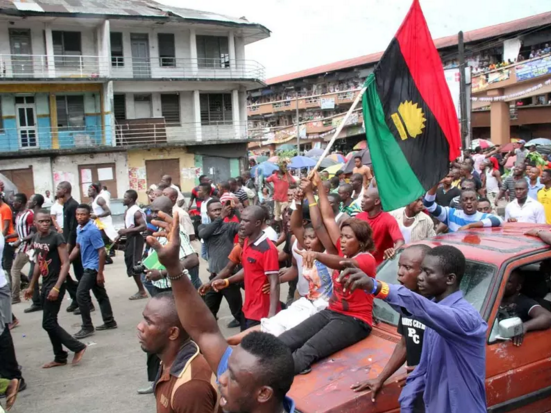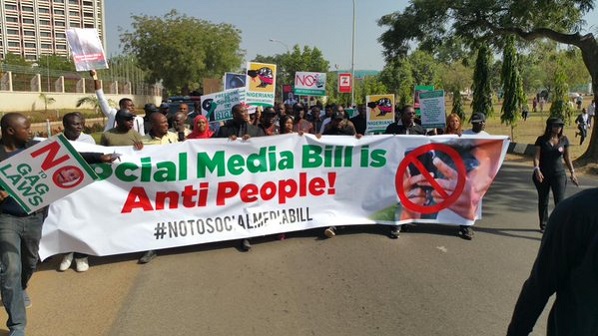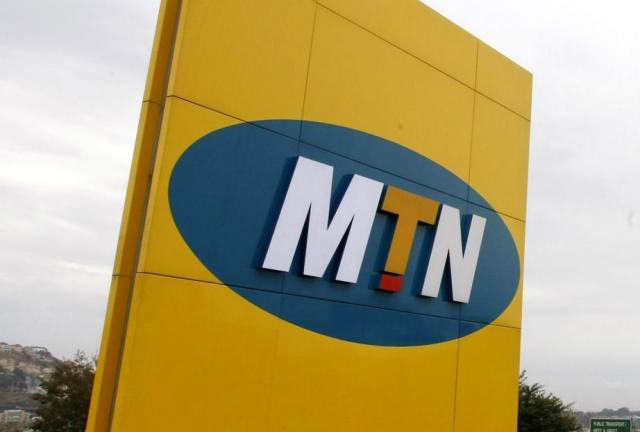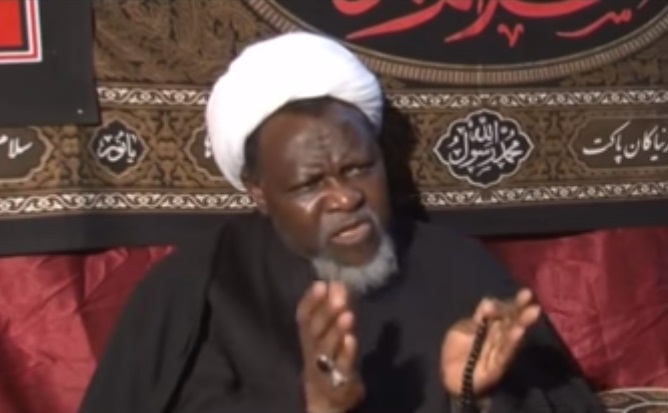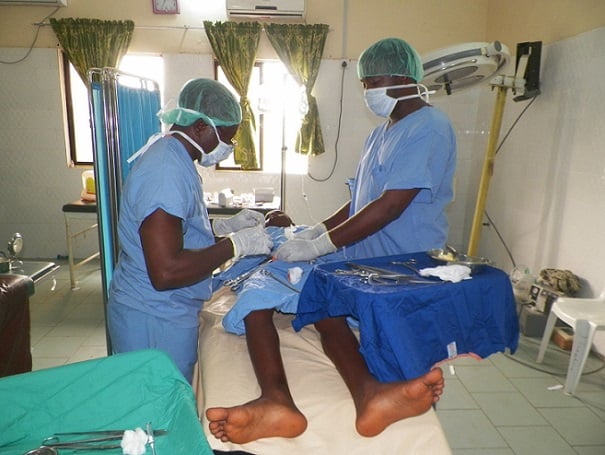By ‘Tunde Ogedengbe
I have decided to “speak out” my mind about the sensitive and potentially dangerous dimension that the agitation for Biafra state is assuming. I am speaking out, against the background of the protests that have been taking place in parts of South East and South South, which according to media reports, resulted in the death of some protesters and police men recently.
The use of arms to quell any form of protest, particularly when the protesters are unarmed is not only wrong but condemnable. We must however recognise that as peaceful as a protest made up of a very large crowd could be, the prospect of the protest being hijacked by hoodlums and miscreants, whose objectives are different from that of the protesters, has always posed a challenge for our security agencies and it was arguably inevitable that something tragic would happen. This kind of incident will only worsen the situation.
Advertisement
In expressing my views, I am conscious of my personality and identity as a “Yoruba man” and the prospect of my views not being regarded as objective because of the generally held view that “It’s only the person that wears the shoes, that feels the pain”. I may not be wearing the “shoes”, in the context of not being an Igbo man, who would have possibly suffered the injustice and inequality which have been presented as the basis for Biafra agitation, but I am at least reasonable and sensitive enough to understand that injustice or inequality has no respect for ethnicity and that no form of injustice or inequality should be allowed in any civilised society. In writing this article, I have also been very mindful of wonderful relationships I have built in my adult life, with people of Igbo extraction, as intimate friends, Christian brothers and sisters, pastors, neighbours, business associates, colleagues and mentors. I hold every one of these people and the entire Igbo nation in high esteem and utmost respect, and none of my views expressed here is aimed at casting aspersion at their personalities or their highly regarded and revered identity.
I do not claim or perceive myself to belong to a superior ethnic group, as every ethnic group has peculiar traits and idiosyncrasies. I have never related with any of these wonderful people on the basis of their ethnicity, but as individuals, many of who have significantly added great value to me and my family. I express these views with “sincerity” and with no “hidden agenda”. My primary concern is about the fostering of our National unity. I trust that these wonderful people would reflect on my article deeply, and draw on their knowledge and relationship with me over the years, to make an appropriate judgement on my personality. God bless them and I sincerely love and appreciate them all.
Advertisement
I believe the feeling of injustice and inequality that’s driving Biafra’s agitation anchors on the structure of the Nigerian federation, which puts the centre in an overbearing position, subtly dictating the development of the federation units. To support this “top-heavy” structure, the resources which generate the revenue are put in control of the super-power federal government, which then allocates the portion due to the federation units, using a controversial formula. The controversial nature of the revenue sharing formula, creates a continuous feeling of inequality, because the federation units never believe they are getting what is due to them, and every economic or development problem in the federation units is mostly attributed to the inappropriate and “unfair” formula.
Because of the super-power position of the federal government, appointment into positions at the federal level becomes very attractive and it offers an opportunity to federation units to position themselves to acquire some powerful political leverage, which could hopefully mitigate the challenges created by the “unfair” revenue sharing formula. This quest for some form of federal power, makes the federal units to be sensitive to the “quality” of appointments, as some positions are considered more influential and “juicy” than others. The Igbos in my opinion believe that, the lack of fair representation at the centre in political, economic and military positions, contributes enormously to the South East geopolitical area, not being as economically developed as other areas.
Advertisement
There is no doubt that since after the civil war, the Igbos have not enjoyed “equal” level of opportunities compared with other federation units. In spite of their significant population, industry and enterprise, the Igbos in my opinion, perceive themselves to be playing second fiddle to other federation units. This position I believe, is further fuelled by their perception of post-civil war victimisation. For a very long time, there is a subtle belief of discrimination amongst our South East brothers and sisters, which unfortunately has made many of them to be more “ethnic phobic” – a high level of sensitivity to political and ethnic issues. This has also made them to resort to a political strategy of self-preservation by operating in a protest mode in politics. I will speak more on this later.
However, from a development perspective, I do not share the view, that discrimination is the root cause of socio-economic problems in the South East. Economic development problem is pervasive in all geopolitical areas of Nigeria, without exception. The plight and misery of the Almajiri in the North, which has been compounded by the level of neglect and poverty, thereby providing an opportunity for Boko Haram to exploit, is an indication of this. Corruption in all tiers of public service is the monster that has made us as a nation, in every geopolitical area to be extremely backward, in spite of the huge resources that we possess and trillions of Naira budgeted annually. If public service leaders could give a good account of themselves, every geopolitical area would have significantly advanced more than their present state. It is too simplistic, in my opinion to mainly attribute the socio-economic problems in the geopolitical areas to the “commanding” role of the centre government, even though the overbearing position of the federal government contributes to it.
Advertisement
While I don’t deny the associated problems arising from our faulty structure, I believe that the efficient use of revenue that accrued to federation units, would have significantly enhanced them. The local government Chairmen for example, control huge sums of money, and the question remains on what they do with the money and what value they add to their local government areas. With the problem of corruption confronting us like a monster, correcting the structural problem of the federation doesn’t necessarily translate to a viable dividend to the people. The greater percentage of the money potentially becoming more available as a result of re-structuring will go to the bank accounts of the political “barons”, leaving the people who matter to continue to feed off the crumbs. Stomach infrastructure concept, a political tool that is now unfortunately being embraced as a strategy to “connect” with the people is a good example of feeding the people with crumbs, instead of deploying resources to build and develop physical and social infrastructure which will create a platform for empowerment and productivity for the people.
Advertisement
Besides, the dynamics of politics of “domination” by the major ethnic groups is replayed within every geopolitical group. In the old Oyo State, there was continuous struggle for relevance and domination amongst the Oyos, Ibadans, Ijeshas and other groups, and these struggles played out in political appointments, location of industries and important and strategic institutions. These struggles cascaded even to the senatorial zones. Restructuring the polity at the national level therefore does not make the problem of discrimination to disappear.
Advertisement
However, not agreeing to discrimination being the root cause of social economic problems in the South East, should not be understood to mean that I am turning a blind eye on other issues. It’s just that, taking discrimination as root cause of the social economic problems, out of the equation, helps to assess the effectiveness of using agitation for Biafra as a means to address other issues. To explore more on the issue of potential discrimination of the Igbo people, we have to look at things from a wider spectrum. Outside of the federal/state government conundrum, the Igbos remain arguably the most dominant group in commerce & industry, from small scale to large scale, and they wield so much leverage in every community in Nigeria, owing to their entrepreneurial disposition.
If you go to the smallest village in Nigeria and there is a report of only one pharmaceutical shop in the village, that shop is more likely to be owned and operated by an Igbo man than any other person. That leverage is actually more evident as you go to the cities. The Igbos dominate the commerce in Abuja wielding tremendous power in real estate, hotels and retail sector. A higher percentage of supermarkets and stores in the federal capital and other Nigerian cities are owned by the Igbos. What about the manufacturing sector? Apart from the multinationals, the Igbos, because of their entrepreneurial disposition, have taken up dominant position in this sector. The Igbos are more visible in import and export sector than any other ethnic group. They are the most active players in all major markets across the nation.
Advertisement
If we reflect on this against the background of claim of discrimination being the major cause of social economic problems in the South East, it is apparent that, one would have to think twice. A people institutionally discriminated against, could not be so visibly dominant in various sectors of the economy. Institutional discrimination leads to oppression and complete alienation of a people as they are even deprived of the opportunity to express their fundamental human rights. Sudan is a good case study of ethnic discrimination.
The Igbos couldn’t have flourished in the manner described above, if the environment had not been conducive and supportive of their enterprising nature. In spite of mutual suspicion that ethnic groups have for one another in Nigeria, which from my experience of living in multi ethnic societies outside Nigeria is typical, we have generally accepted one another in the society and this acceptance has created opportunities for people to thrive regardless of their ethnicity. As a matter of fact, the momentous positioning of the Igbos in commerce in all towns and cities call to question the wisdom of agitating for breaking away from the Nigeria nation. Think about the potential hostility arising as a result of this agitation and the potential “exodus” of the Igbos from parts of Nigeria where they have built a huge economic powerbase.
One can see the prospect of significant loss of huge investment as a result of stampede sales of assets and businesses, culminating in the Igbos potentially transferring their economic power to others. The recent statement by the Chairman, Forum of State Presidents of Ohanaeze in the seven Igbo-speaking states, Dr. Chris Eluomunoh that “Igbo people have contributed much to the development of Nigeria and we cannot allow some people to jeopardize the lives and efforts of millions of Igbo residing in all parts of Nigeria” corroborates this position.
My view of this is that, the acceptance of the Igbos in the society, which enables them to develop their entrepreneurial disposition allowing them to become economic power base in every community, mitigates the challenge of their perceived discrimination in the federal govt/state government conundrum. And more importantly, I wonder why the agitators would want to follow a track which would culminate in the throwing away of tremendous power which they have, in a bid to address the discrimination on the other side. While I assert that, the “free” environment which allows all and sundry, including the Igbos to thrive provides some form of mitigation, of the challenge of perceived discrimination, I do not suggest a “take what you have been given” stand. I strongly believe no form of discrimination is justifiable in our polity and initiatives must be put in place to address all concerns about it. The point I am trying to put across is that, the interaction and the widespread integration of the Igbos with other ethnic groups, make them impossible to ignore and this in itself is potentially a powerful weapon to drive initiatives to correct the issues of discrimination.
Agitation for Biafra is at best a gamble and there is as much prospect for success as there is for failure. As a matter of fact, from my corner of reasoning which some may regard as biased, there remains a greater opportunity for the Igbos to flourish and thrive as part of the Nigeria state, than as a Biafra state. I make this statement from the knowledge of relationship between the level of prosperity of a people to the population and the investment space available. Even from the dynamics of power, population and size of investment space play an important role in the potential leverage of power that a nation will wield. This is the basis for unification of Germany and why President Putin is trying as much as he can, to resurrect the defunct USSR. I submit therefore, that the Nigerian nation offers the Igbos and every ethnic group the benefit of a huge population and a large investment space to realise their potentials.
Yes, we have problems to be addressed, but the problems that exist don’t justify adopting a strategy that could potentially destroy the entire house. I admit that getting to address these problems, has been painful and frustrating. However, the opportunity for addressing these problems is there for us to continue to explore. Some people may claim that the circumstance that results in the emergence of President Jonathan is more of an accident than a deliberate political will. Yes, that could be true, but from my Christian perspective, I know that God rules in the affairs of men, and He is at work, fighting for the disadvantaged. Interestingly, the circumstance that led to the presidency of Goodluck Jonathan is not really different from the emergence of Obasanjo as the President. The issues arising from the annulment of June 12 1993, were the platform that Obasanjo stood upon to become the President. If we reflect on the death of Abacha, and other issues, we should clearly see the hand of God in all that. It’s important for our South East brothers and sisters to exercise restraint, while they pursue peaceful and strategic political initiatives to secure the remedy required to correct the present day inequalities.
This takes me to the point that I made earlier, of our Igbo brothers resorting to strategy of self- preservation by operating in a protest mode in politics. While discussing the substance of this article with a brother/friend, he actually opined that all major ethnic groups adopt self- preservation strategy as a default position, when they feel alienated. He called my attention to the perception of many from other ethnic groups that the Boko Haram insurgency was a political instrument either created or used by the Northern elites to protest their long loss of power at the centre occasioned by the untimely death of YarAdua. We can also recall the “explosive” sharia issue during Obasanjo’s regime, but which fizzled out as soon as YarAdua came in.
Self-preservation strategy can also not be regarded as an exclusive tool to champion tribal and ethnic causes. The political class over the years resorted to this strategy in their quest to confront military dictatorship. NADECO – an alliance formed by prominent Nigerians across all ethnic groups, which includes prominent people of Igbo extraction, such as Chief Ralph Obioha and Rear Admiral Ndubisi Kanu, its Chairman, in protest of the annulment of June 12 1993 election by General Babangida, actively and aggressively became a “thorn in the flesh” of the military, in demanding for a return to democracy. The democracy, whose cause they championed has now become the bedrock of civil governance in Nigeria. Unfortunately, our practice of democracy has been fraught with many anomalies.
However, for as long as we see democracy as the viable means for civil governance, we must accept the fact that, the winner in the politics of election, will always be the candidate that commands the majority vote. That in itself poses a challenge, particularly in our largely primitive democracy that is defined by ethnicity and religious sentiments. If we continue to follow this unfortunate track, the candidates that represent largest ethnic group/religion will always have the winning edge. To be politically “powerful” in the scheme of things therefore, require strategic thinking, positioning and alliance which will give an ethnic group the influence needed to secure political power. Many people from other ethnic groups perceive South Easterners as subtly “defensive” and suspicious of other major ethnic groups. Should there be a shred of truth in this perception, then it could potentially explain the reason why they opt “naturally” to align with their “brother/in laws” in the South South on electoral matters and this in my opinion could be read as an emotional way of responding to issues which could also be some form of self-preservation strategy, operating in protest mode.
Our brothers and sisters in the South East, need to be more pragmatic and strategic in political alliance. It’s important that they recognise that politics is a game of number and being in any alliance that could not guarantee the required number to win political power is a fruitless exercise. It is my candid opinion, that the present agitation for Biafra state, has more to do with the frustration of the South East, voting overwhelmingly for an incumbent presidential candidate who eventually lost. The overwhelming nature of South East voting pattern would undoubtedly produce a feeling of alienation. This was particularly not helped by President Buhari’s skewed political appointments at the inception of this administration.
Some who may question my reasoning, that the frustration of voting overwhelmingly for a losing candidate in the last election, should reflect on why the agitation suddenly became a burning issue under an administration which was barely taking of, whereas the underlining issues being raised as the reasons for the agitation, has been with us for decades. It’s a known fact, that the South Easterners enjoyed a good “patronage” of President Jonathan, in terms of political appointments, explaining why they backed him overwhelmingly, in the election. That the “good outing” under the presidency of Jonathan, did not deliver any dividend to the South East supports my argument that, discrimination in federal appointments is not the primary reason, why the South East or other geopolitical areas remain under-developed.
While the Igbos had a good “outing” under GEJ, some ethnic groups were not so “lucky”. At worst, the Biafra agitators should see power as cyclical – you could be relevant today, but have a reversal of fortune tomorrow. I don’t suppose it is a sensible thing to bring down the house, because of present inconveniences. The best thing to do in the circumstance is to reposition and adopt a long term strategy for gaining “influence” in the next election. Of course, restructuring undoubtedly has benefits, as it provides some relief to the federation units, which could potentially make political appointments at the centre, less attractive. However, as I have established, it does very little in providing a platform for economic development, as long as corruption remains an acceptable way of life to Nigerians. The challenge for ordinary Nigerians is to put leaders to task by demanding for accountability, rather than be content with offer of “stomach infrastructure”.
Talking about President Buhari’s skewed appointments, I supported Buhari’s Presidency, but apart from the appointment of Ministers, where he clearly had to follow constitutional stipulation, that at least a Minister must come from every state, I’m not impressed with his pattern of appointments so far, for the singular reason that I believe it doesn’t demonstrate an appreciation of present political dynamics where religion and ethnicity have emerged as important fault lines. The President’s actions must not only be merit based, but must also promote national unity and cohesion. It will be naive for our President to undermine this principle in his appointments. With our unity still fragile, it becomes imperative that our leaders become mindful of how their actions and inactions promote or undermine national unity.
While I unreservedly acknowledge and accept the use of self-preservation strategy to advance a people’s cause, I believe an effective self-preservation strategy is the one that draws empathy and support from all and sundry, particularly from other ethnic groups. It is my opinion that threats of secession or breakaway creates a very explosive environment with potentially devastating consequences for all. This is particularly made more terrifying as the scars of the civil war, which ended more than forty five (45) years ago have not completely healed.
Nonetheless, the dangerous dimension the agitation has assumed means that the matter should be taken more seriously. President Buhari needs to demonstrate statesmanship and goodwill, by creating an opportunity for dialogue with all leaders of thoughts of Igbo extraction. We need a credible engagement up to the Igbo community leadership level, geared towards re-assuring the Igbos of playing an important role in this administration.
The sensitivity of this matter means the opportunity and ability to arrest this dangerous trend lies more with credible apolitical Igbo leaders. I believe their voices will resonate more with the ordinary Igbo citizens and the agitators.
May we not all, one day regret failing to endure the seemingly “inconveniences” and inequalities of the present day Nigeria structure which offers us an opportunity for continuous dialogue and finding ways to progress in spite of them. What looks to the agitators as the only viable strategy to “correct” our present day imbalances may actually be a roadmap to self destruction and annihilation for every tribe and ethnic group in our beloved Nigeria. If any civil war potentially breaks out of this, it may be a war that will last a generation. Thinking of the potential momentous human costs, and extensive backwardness owing to massive destruction of infrastructure as a result of civil war breaking out of this malady, we need to ask ourselves if the potential benefits of this action adequately compensate for the costs. It’s time for men and women of reason to arise, stand and be counted.
God bless Nigeria.
Ogedengbe wrote from the United Kingdom
Views expressed by contributors are strictly personal and not of TheCable.
